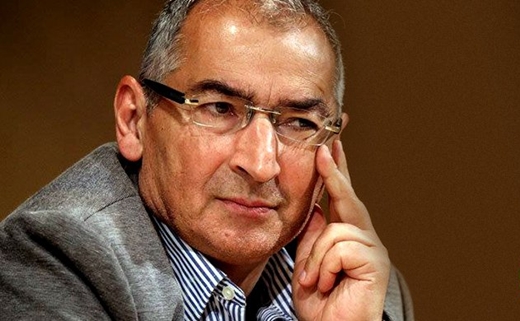President Rouhani has appealed to university students to “critique authority”, telling them that “criticizing some institutions is a bit difficult, so lead off with the Executive branch and the president”.
President Rouhani made the call as he addressed students at a ceremony at Sharif University of Technology on December 7. In reaction to the president’s comments on critiquing those in power, Sadegh Zibakalam – a political analyst and a university professor – has said that people’s representatives in parliament, not university students, should analyze and assess the performance of the government.
The following is the translation of a piece by Zibakalam Arman daily published on December 8:
On Monday, the president was among students at Sharif University of Technology to mark Student Day. President Rouhani brought up issues at the university which received a hearty welcome from the audience.
The fact of the matter is that December 7 and his speech marking Student Day provided the president with the opportunity to indirectly broach his ideas and viewpoints, among them his statements on the accountability of the power structure. The president said that no office holder can shy away from accountability.
Basically authority comes with accountability. You cannot wield power but fail to account for the decisions you make simply because of the power you exercise.
The president also focused on critiquing authority and placed the main burden for critically analyzing the power on the shoulders of universities. I do not see eye to eye with the president on this subject and believe that the role universities are expected to play is clear and defined from a sociological perspective. University is a place where science and research should be developed.
The critique Mr. Rouhani has raised should happen, but universities are not supposed to place such a critique top on their agenda. Authority should be critiqued by parliament which is the most important institution in a democratic system. In other words, people are the ones who are expected to critique the government and the latter should be accountable to the former.
It is quite natural that the government cannot be answerable to all members of society, thus parliament [which represents people] should hold the government accountable. In an undemocratic system, the government does not feel accountable for what it has done or has failed to do.
The other way around, in a parliamentary democracy the representatives of people and in a later stage media outlets should critique authority as well as the policies and decisions of the government.
University professors and students can critique authority, but it should not be forgotten that such a responsibility is placed on universities when political groups, parties and parliament turn into rubber-stamp institutions. Such a parliament does have room for individuals like Mohammad Mosaddegh [an Iranian prime minister who championed the nationalization of the oil industry], Seyyed Hassan Modarres [a notable cleric who supported the Iranian Constitutional Revolution] and Mehdi Bazargan [the first Iranian prime minister after the victory of the Islamic Revolution].
The fact is that independent and freedom-seeking deputies should be given a seat in parliament, those who fear no one and can critique state officials and political movers and shakers.
By and large, the president floated the question of critiquing authority and the accountability of officials. That such a question has been raised was quite helpful. We should be happy and thank God that he raises such issues, simply talking about such issues is not enough, though.
